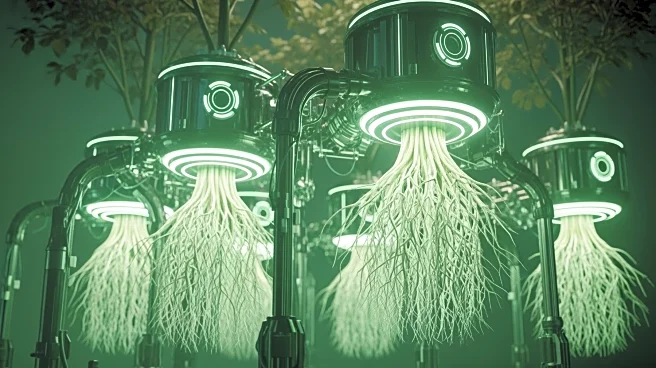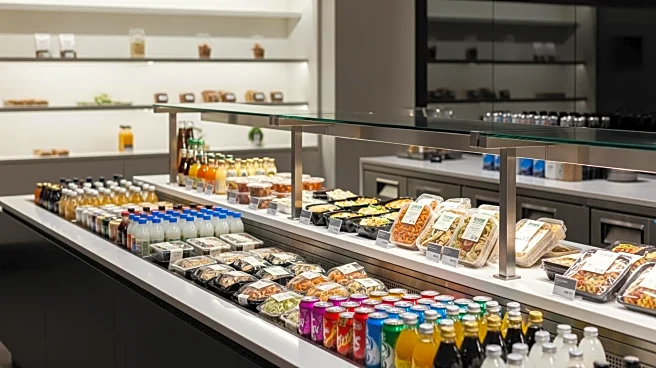What's Happening?
Ginkgo Bioworks and Bayer are collaborating to develop advanced nitrogen-fixing biologicals aimed at reducing the reliance on synthetic fertilizers in cereal crops. The initiative, led by Michael Miile,
focuses on engineering soil microbes to fix atmospheric nitrogen, thereby enhancing nitrogen-use efficiency. This approach promises to deliver nitrogen directly to plant roots, minimizing leaching and runoff losses. The partnership, which began with the formation of Joyn Bio, has evolved with Ginkgo absorbing Bayer's R&D function for biologicals. The goal is to create microbes that can be applied as seed coatings with extended shelf-life and efficacy across various soil types and crops. Despite technical challenges, such as ensuring microbial colonization and nitrogen transfer, the collaboration aims to significantly reduce synthetic fertilizer usage, potentially by up to 40%.
Why It's Important?
The development of nitrogen-fixing biologicals by Ginkgo and Bayer is significant for the agricultural industry, as it addresses environmental concerns associated with synthetic fertilizers. Reducing synthetic fertilizer use can decrease greenhouse gas emissions and mitigate the harmful effects of nitrogen runoff on ecosystems. Economically, a reduction in fertilizer input by 25% or more could be compelling for growers, offering cost savings and sustainability benefits. This innovation aligns with global efforts to enhance agricultural productivity while minimizing environmental impact, potentially transforming farming practices and contributing to climate change mitigation.
What's Next?
The next steps involve overcoming regulatory hurdles and conducting field trials to ensure the efficacy and consistency of the engineered microbes. Bayer plans to commercialize products that outperform current offerings, focusing on seed treatments with longer shelf-life. The industry anticipates regulatory bodies to adapt to the rapid pace of innovation in agricultural biotechnology. Successful implementation could lead to widespread adoption of microbial fertilizers, reducing dependency on synthetic options and promoting sustainable agriculture.
Beyond the Headlines
The collaboration between Ginkgo and Bayer highlights the growing importance of biotechnology in agriculture, particularly in addressing climate change and sustainability challenges. The use of AI and automation in research labs is expected to enhance productivity and innovation, leading to more efficient and consistent biological solutions. This development may also influence global agricultural policies and practices, encouraging other countries to invest in similar technologies.









